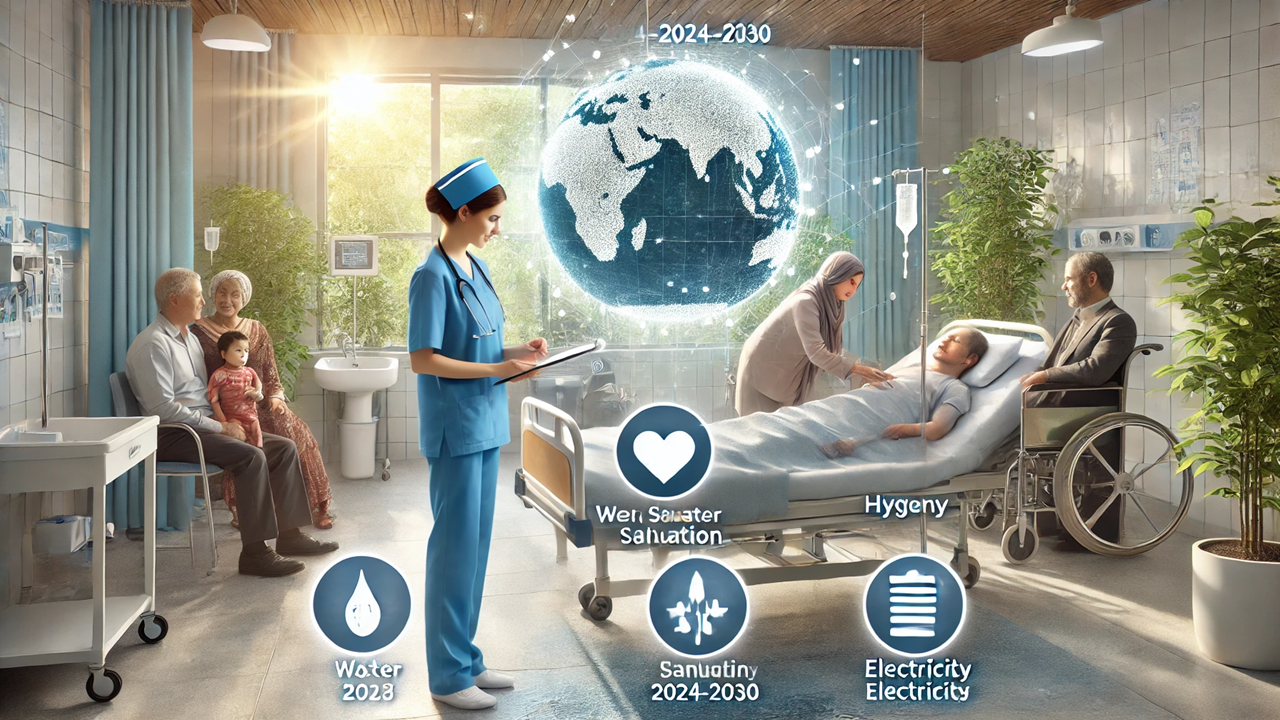Global Push for Better Healthcare Facilities: A 2024-2030 Vision
The World Health Organization (WHO) and UNICEF have unveiled the Global Framework for Action 2024-2030, aimed at ensuring universal access to water, sanitation, hygiene, waste, and electricity services in healthcare facilities. This initiative seeks to enhance quality healthcare, particularly in underserved regions, through increased political commitment, system strengthening, costed roadmaps, regular monitoring, and workforce training.

In an ambitious new initiative, the World Health Organization (WHO) and UNICEF have launched the Global Framework for Action 2024-2030. This collaborative effort aims to ensure universal access to water, sanitation, hygiene, waste, and electricity services in all healthcare facilities, addressing critical gaps undermining quality healthcare delivery.
A Call for Political Commitment
The framework calls for heightened political commitment and leadership to scale up investments in essential services. WHO and UNICEF emphasize that without strong political will, the necessary changes in healthcare facilities, especially in low- and middle-income countries, will remain unattainable. By advocating for joint advocacy with major health, WASH (water, sanitation, and hygiene), waste management, and energy initiatives, the framework seeks to create a robust support system for improving healthcare services.
Strengthening Systems and Developing Roadmaps
One of the critical strategies outlined in the framework is the integration of WASH, waste management, and electricity services into health sector policies and programs. Countries can develop and implement costed roadmaps that ensure sustainable improvements by aligning these services with national health plans and economic realities. Regular monitoring and review mechanisms will be established to ensure adherence to global and national standards, helping to maintain momentum and accountability.
Addressing Critical Gaps
Despite significant progress, there remain alarming gaps in essential services within healthcare facilities worldwide. Approximately 22% of healthcare facilities lack basic water services, affecting 1.7 billion people globally. Hygiene services are similarly deficient, with half of healthcare facilities lacking basic hygiene services. In low- and lower-middle-income countries, nearly 1 billion people are served by healthcare facilities with unreliable electricity or no electricity at all. These deficiencies have devastating impacts, leading to preventable deaths and economic losses.
Ensuring Sustainability
To address these critical gaps, the framework offers several key recommendations. WASH, waste, and electricity services must be incorporated into health sector planning, programming, financing, implementation, and monitoring mechanisms. Establishing robust monitoring systems to track service levels and user satisfaction is crucial. This includes integrating harmonized indicators into national monitoring systems and regularly reporting on budgets and expenditures. Training and mentoring healthcare workers and other staff in good hygiene practices, waste management, and WASH and electricity services maintenance are essential. Ensuring that staff have the necessary skills and knowledge will help maintain safe, sustainable, and inclusive services.
WHO and UNICEF will lead the global efforts, supported by a core group of partners, including the World Bank and WaterAid. National governments, healthcare facility managers, and communities will play a central role in implementing the framework. Tools and databases, such as the Water and Sanitation for Health Facility Improvement Tool (WASH FIT), will support the implementation of key actions and recommendations.
Public sector investment is crucial for the sustainability of these efforts. In lower-middle-income countries, increased development support from donors and the promotion of cost-effective, sustainable technologies are necessary. Clear ownership of infrastructure assets and responsibilities will ensure effective operation and maintenance. The framework underscores the need for increased resourcing at all levels, nationally and internationally, to achieve its ambitious targets.
The Global Framework for Action 2024-2030 sets a clear and ambitious vision for improving healthcare facilities worldwide. By fostering strong leadership, collaborative partnerships, and increased investments, the framework aims to achieve universal access to WASH, waste, and electricity services in healthcare facilities by 2030. This is essential for delivering quality, climate-resilient, and sustainable healthcare services globally.
- FIRST PUBLISHED IN:
- Devdiscourse
ALSO READ
UNICEF Urges Immediate Action as Sudan’s Children Face Humanitarian Crisis
UNICEF Urges Action to Combat Severe Child Malnutrition Crisis in Sudan
Hamas Attacks UNICEF Aid Convoy Amidst Coordinated Rescue Operation
Gaza's Growing Health Crisis: War's Lingering Impact on Water and Sanitation
UNICEF Reports 60% Increase in Internally Displaced Children in Haiti Amid Escalating Violence










